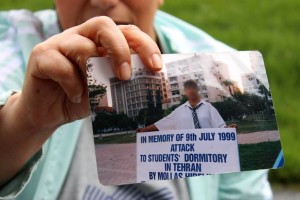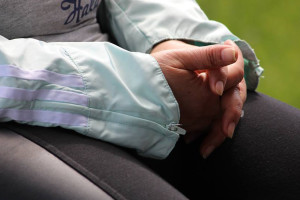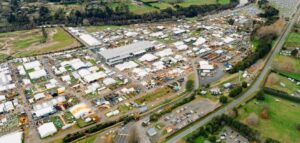Iranian Memoir: Human Rights, Women and Islam
Sara (not her real name) often dreams of going back to Iran, and then wakes up in a panic, as she remembers a life of fear.
She was born in Tehran, the capital of Iran, when Mohammad Reza Shah Pahlavi, the Shah of Iran, was in power.
Looking back on this time, Sara feels a sense of sadness and guilt for her country.
“I didn’t understand that a government could be corrupt… we were just puppets in the hands of Ruhollah [Ruhollah Moosavi Khomeini]” she said.
Iran in the 50’s was a prospering nation, with a proud history as the cradle of the Persian empire and had a bright future with the oil industry boom.
The king was put back in power in 1953 by the American Central Intelligence Agency (CIA) and British Secret Intelligence Service (MI6) after a coup d’état.
The reinstatement was not against a Soviet puppet or a dictator, but a democratically elected Prime Minister of Iran, Mohammad Mosaddegh, who had nationalised Iran’s British-owned oil fields.
The rich and poor divide grew in the 60’s and 70’s and this, along with the Shah’s disregard for the common people, fueled a strong anti-westernization wave.
The Shah was overthrown in the Iranian revolution of 1979 under the Grand Ayatollah Ruhollah Moosavi Khomeini.
The people wanted change, but this was not the change that they expected, says Sara.

loss of youth. Photo: Tamara Thorn
“I was young when the revolution happened…we [the rebels against the Shah] thought that if we took the Shah out of power, a new regime would come and bring democracy, but we were all wrong.”
The revolution started as movement for democracy and ended with the formation of the world’s first Islamic state.
Nationalists and Marxists of Iran had, at the time of the revolution, joined with Islamists to overthrow the Shah. However, soon after taking power, tens of thousands were executed under orders of Khomeini.
“Eight years ago people started again to create a revolution, but they [the government] don’t have pity on anyone. They kill people in the streets, they kill everyone.”
Many people escaped, because of this, regardless of what they were leaving behind.
Sara was one of the many to escape Iran.
Before leaving she fought for women’s rights and protested against the killings in Iran.
“In Iran, women don’t have custody of their children… Women are considered half of the man, they don’t have any rights.
“I was fighting for women’s rights in my country… with a women’s organisation that was underground, but most of them [the women] were hanged.”

She was warned by a friend in the government that she was in danger, and she managed to escape Iran with her daughter.
She moved to Cyprus, and then to New Zealand, which is where she has been for the last four years.
Sara says that New Zealand is very fortunate.
“I heard here is safe and a very good country, it has a democracy and there’s no corruption, and police here are not armed with guns.”
Sara is grateful for the people of New Zealand and the safety that she now has in her life, but New Zealand will never be her real home.
“If Iran stays the way it is now, I will never go back. But if the government or system ever changes… maybe one day I will go home.”




